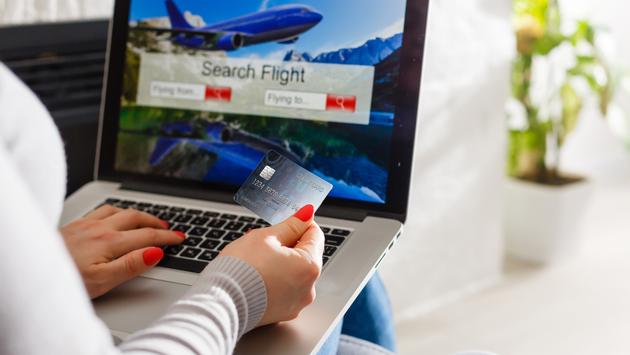Travel Fares Will Rise As More People Book Flights and Hotels

It’s as simple as supply and demand.
Between more and more people being vaccinated, combined with pent-up demand for travel, the number of travelers is increasing.
As is the result, so are airfares and hotel rates.
Slowly, but definitely surely, the cost of travel is inching back up, to the point where CNBC noted that travelers shouldn’t expect those $30 airfares much longer.
For the most part, the rate of positive COVID-19 tests are dropping and President Joe Biden achieved his goal of 100 vaccinations in 100 days with 42 days to spare, creating a sense of confidence that travel can resume more robustly.
CNBC noted that travel-search site Kayak said searches for summer travel have been up 27 percent for several weeks and that airfares for the top 100 most-searched U.S. destinations are up 7 percent month-over-month.
“Domestic airfares are rising. While discounts can still be found, they’re no longer falling into consumers’ laps,” said Jamie Baker, JP Morgan airline analyst. “Discounted fares increasingly require a hunt, and for many consumers that have been locked up for a year, they’re probably not up to the effort.”
Travel advisors predicted that pent-up demand would lead to a rise in prices. The cheapest domestic leisure airfares, which include those promotional fares that airlines send to your inbox, were $59.48 as of March 15, still 26 percent lower than a similar week in 2019. That should be erased fairly quickly, however, as fares rose six percent in the last week. If it continues at that rate, the promotional fares will be back to 2019 levels.
Airline executives on Monday said bookings were picking up in March and stretching to the summer, but that U.S. carriers are on track to lose on average of $150 million a day this quarter, according to Airlines for America. But, again, if the uptick continues both United Airlines and Delta Air Lines said the increases will finally staunch their cash burn this spring.
“As long as there is not a setback we are on the road to recovery and we can put those days of talking about cash burn, layoffs and things like that largely in the rearview mirror,” CEO Scott Kirby told CNBC’s “Squawk Box” on Tuesday.
Hotel occupancy in the U.S. this month through March 13 is averaging more than 51 percent, the highest in more than a year, according to hotel data analysis firm STR. In hot vacation spots like Miami, occupancy is nearly 70 percent with average rates of $228 a night, the highest prices since February 2020.
